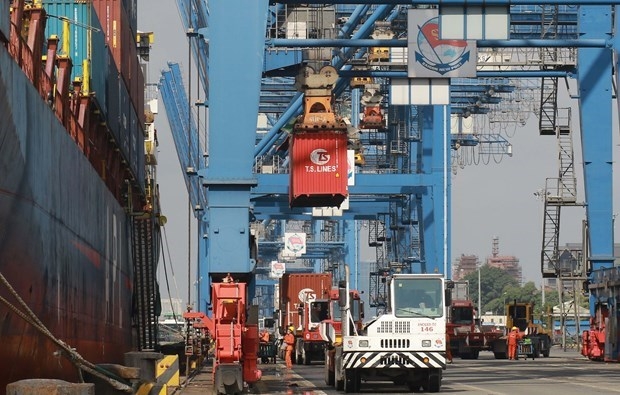
|
Vietnam’s goods exports to the European Union (EU) market are expected to get brighter than in 2021 as Vietnamese businesses are better taking advantage of incentives of the EU-Vietnam Free Trade Agreement (EVFTA), according to trade experts. |
|
They also said that after 2 years of the COVID-19 outbreak, both Vietnam and the EU are adapting better and better to the pandemic and speeding up the vaccination of basic and booster shots. In particular, the Vietnam – EU economic and trade ties with a solid foundation from the EVFTA will enjoy many promising opportunities after the pandemic, thus bringing practical benefits to the business communities of both sides. Thee EVFTA officially became effective on August 1, 2020, marking an important milestone during 30 years of cooperation and development between the two sides, and opening up a new promising stage for the bilateral comprehensive partnership. Statistics from the Vietnam Customs show the trade turnover between Vietnam and the EU reached 51.3 billion USD in the first 11 months of 2021, up 13.8 percent over the same period of 2020; of which exports hit 35.96 billion USD, up 12.6 percent and imports 15.34 billion USD, up 16.6 percent. In particular, Vietnam enjoyed a trade surplus of 20.6 billion USD, up 9.8 percent compared to the same period last year. According to trade experts, in the context that the COVID-19 pandemic has negatively affected all trade and investment activities of the world as well as Vietnam, the implementation of the EVFTA is of significance to help offset the economic downturn and bring more diversified market opportunities for businesses and create post-pandemic growth momentum. This is also an opportunity for businesses to join new supply chains to replace the traditional ones that have been interrupted or stalled due to the long-lasting pandemic. At present, the EU is the world’s second largest import market with the value of around 2.16 trillion VND in 2020. Meanwhile, the market share of Vietnamese exports in the EU is only about 2 percent, and the import and export structure of Vietnam and the EU is also mostly complementary and not directly competitive. Therefore, room for Vietnam’s exports to the EU remains large in the coming time, when the EU economy recovers and grows again and its demand for import of goods increases. Source: Nhan Dan Online |

